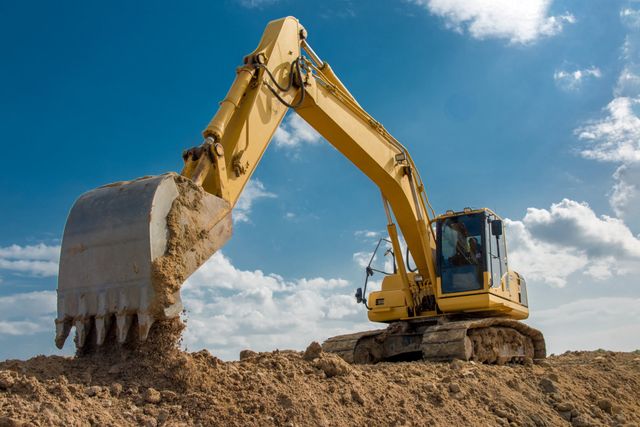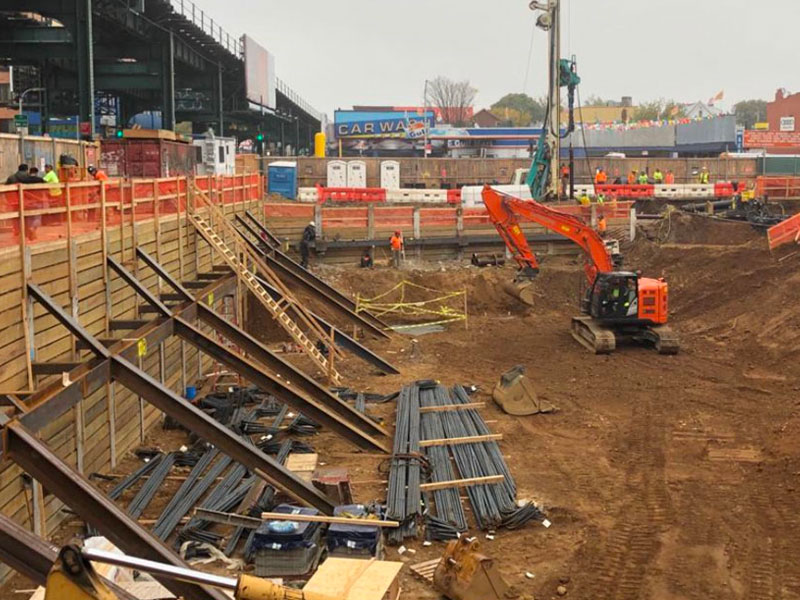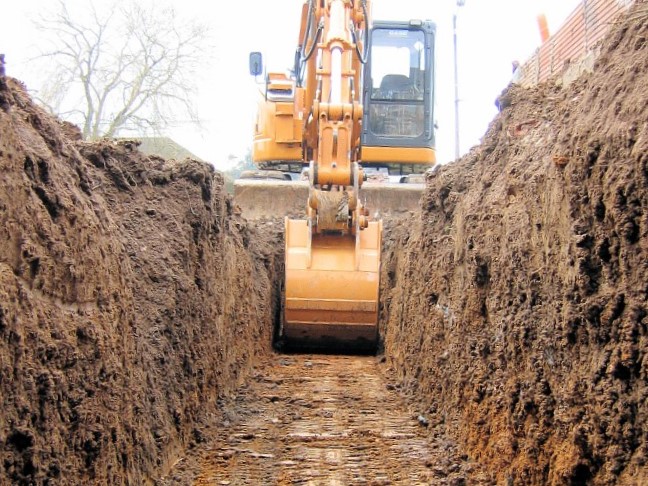Commercial Lancaster Trenching - Trenching Services for Businesses in Lancaster
Commercial Lancaster Trenching - Trenching Services for Businesses in Lancaster
Blog Article
Extensive Expedition: The Science Behind Superior Excavation Practices
The realm of excavation practices is a domain name where science links with workmanship to uncover the enigmas hidden underneath the planet's surface. From old hand tools to modern-day hydraulic excavators, the advancement of excavation methods has been a testimony to human ingenuity and technological developments. What really sets exceptional excavation practices apart is a deep understanding of geological concepts, coupled with the application of innovative tools and techniques. By discovering the science behind these practices, we can uncover the tricks that lie beneath our feet and appreciate the accuracy and experience that go into every dig.
Advancement of Excavation Strategies
Throughout history, the evolution of excavation methods has played a vital role in progressing construction techniques and archaeological discoveries. From the primary tools utilized by our forefathers to the innovative machinery utilized in contemporary times, the progression of excavation techniques has dramatically changed how we come close to different projects.
In ancient times, manual work with fundamental tools such as shovels, pickaxes, and wheelbarrows was the main approach of excavation. This labor-intensive procedure restricted the deepness and range of excavations, typically resulting in sluggish progress and restricted access to certain sites. As human beings progressed, so did the strategies and tools made use of for excavation.
The Industrial Transformation noted a transforming factor in excavation methods with the introduction of steam-powered equipment. In contemporary times, technology plays an essential duty in excavation, with advancements like GPS systems, drones, and 3D scanning enhancing accuracy and performance in the area.
Function of Innovation in Excavation

The integration of innovative modern technology has basically revolutionized the field of excavation, boosting precision and effectiveness to extraordinary degrees - excavating ohio. One of the essential technical innovations that has actually considerably affected excavation techniques is the utilization of GPS systems.
Moreover, the arrival of 3D modeling and simulation software has streamlined the planning procedure for excavation tasks. Operators and engineers can now imagine the whole excavation procedure prior to damaging ground, maximizing and recognizing possible challenges workflow. In conjunction with this, the application of drones in excavation activities has assisted in airborne studies, volumetric dimensions, and site inspections with unequaled rate and precision.
Geological Principles in Excavation
An understanding of geological concepts is necessary for making certain the structural integrity and security of excavation sites. Geological variables play a critical function in determining the usefulness and security of excavation tasks.
By conducting complete geological studies and evaluation, excavators and engineers can establish approaches to mitigate risks and guarantee the effective conclusion of excavation tasks. Inevitably, incorporating geological principles into excavation methods is critical for achieving safe, effective, and sustainable results.

Newest Tools for Excavation
In the world of excavation practices, modern developments in devices have actually revolutionized the performance and precision of excavation procedures. These drones can supply comprehensive airborne surveys of excavation websites, providing real-time information on topography and potential risks.
One more cutting-edge device gaining appeal is the application of 3D printing technology for producing custom-made excavation equipment. This enables the production of specialized devices that are tailored to the certain needs of a job, raising effectiveness and lowering downtime.
Additionally, advancements in materials scientific research have caused the growth of stronger and a lot more sturdy excavation tools. lancaster excavation. Tungsten carbide-tipped excavator accessories, for instance, deal exceptional efficiency in tough ground conditions, enhancing efficiency on-site
Scientific research's Influence on Excavation Practices

Furthermore, advancements in products scientific research have led to the creation of more powerful, extra long lasting excavation devices and devices. The use of composite materials in shovels and diggers has actually improved their efficiency and longevity, inevitably raising productivity on excavation sites. In addition, scientific research on dirt auto mechanics and geotechnical engineering has offered important understandings into soil habits, allowing excavation specialists to make informed choices relating to excavation methods and dirt stabilization strategies. In general, scientific research continues to drive advancement and improvement in excavation methods, making excavation projects a lot more efficient, cost-efficient, and sustainable.

Conclusion
In conclusion, the evolution of excavation techniques has been greatly affected by innovations in modern technology and a much deeper understanding of geological principles. septic ohio The most up to date devices and devices used in excavation have actually boosted effectiveness and accuracy in the field. The application of scientific understanding has considerably improved excavation practices, bring about a lot more sustainable and efficient methods for excavating numerous kinds of products.
In the realm of excavation techniques, modern developments in tools have actually reinvented the effectiveness and precision of excavation procedures. By leveraging scientific concepts, the excavation market has been able to significantly boost effectiveness, accuracy, and safety and security in excavation processes. GPR permits excavation groups to non-invasively scan and map subsurface frameworks, utilities, and possible risks, allowing them to plan excavation tasks with higher accuracy and minimized risk of crashes.
Additionally, clinical research on dirt auto mechanics and geotechnical design has given useful insights into dirt habits, permitting excavation experts to make enlightened decisions pertaining to excavation techniques and dirt stabilization strategies. Overall, scientific research proceeds to drive advancement and improvement in excavation methods, making excavation tasks much more reliable, affordable, and lasting.
Report this page